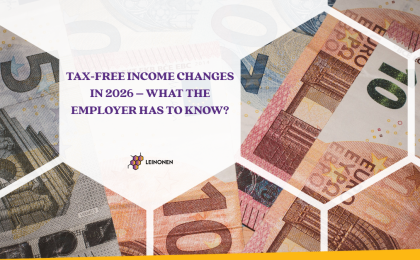The taxes paid on the use of an employer’s car for private purposes will depend solely on the power and age of the car in the future (not the distance travelled) and travel logs will no longer be required. The number of kilometres driven with the car for private purposes will no longer matter: the age of the car will be considered instead. The upper limit of taxing the private use of a company car per calendar month was 256 euros pursuant to subsection 48 (8) of the Income Tax, but future calculations will be based on kilowatts.
The price per kilowatt of a car will be 1.96 euros, of which the tax payable on the fringe benefit (income and social tax) will be 1.30 euros per kilowatt per month. If the car is more than five years old, the price of the fringe benefit will be reduced by an additional 25%. Employees will no longer be able to compensate the employer for using the company car.
The owner or authorised user of a car used solely for business purposes must make an entry in the Traffic Register that excludes the use of the car for private purposes (guaranteed by the employer). The tax authority must prepare guidelines for taxable persons that explain how they can prove that the car has not been used for private purposes. No such guidelines had been made available as at the end of November.
This change does not concern the compensation paid for the use of a personal car. The current regulation will remain in force in this respect. In the case of vans, the taxable person can choose whether they wish to continue with the present taxation or transfer to taxation by kilowatt.




